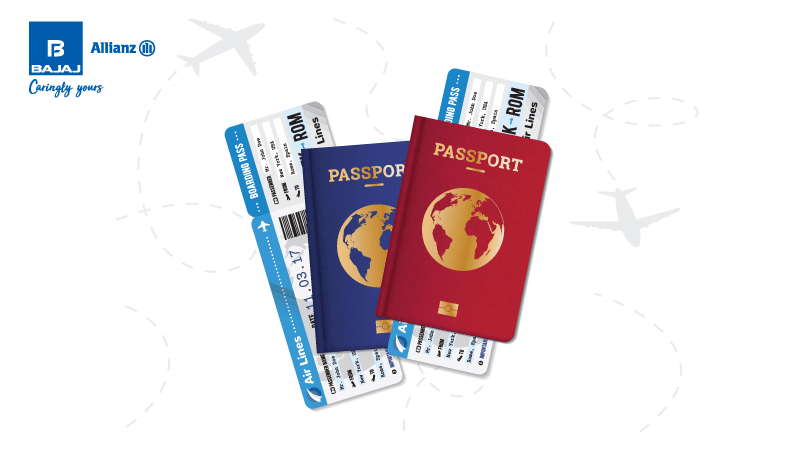In a world where travel is often seen as a symbol of freedom and opportunity, not all passports are created equal. While some grant their holders access to a multitude of countries with ease, others struggle to secure even a handful of visa-free destinations. In this blog, we'll delve into the rankings of the world's least powerful passports for 2025, exploring the challenges faced by their holders and the factors contributing to their low standings.
Understanding Passport Power
Passport power refers to the extent of global mobility and access granted to its holders. It is primarily gauged by the number of countries that citizens can enter without requiring a visa. Essentially, the more visa-free destinations accessible to passport holders, the stronger and more valuable the passport is perceived to be. This metric reflects a nation's diplomatic relationships, economic stability, and overall standing in the international community. A passport with high power facilitates easier travel, fosters economic opportunities, and promotes cultural exchange, while a weaker passport may limit individuals' mobility and opportunities on the global stage.
The Rankings
According to the
Henley & Partners Passport Index for 2025, the following countries have the weakest passports, ranked from lowest to slightly less low:
- Afghanistan 🇦🇫 - Access to just 28 countries without a visa.
- Syria 🇸🇾 - Slightly better off with 29 visa-free destinations.
- Iraq 🇮🇶 - Offering access to 31 countries.
- Pakistan 🇵🇰 - Providing visa-free entry to 34 nations.
- Yemen 🇾🇪 - A passport allowing travel to 35 countries.
- Somalia 🇸🇴 - Offering access to 36 visa-free destinations.
- Palestinian Territory 🇵🇸 - Passport holders can visit 40 countries without a visa.
- Nepal 🇳🇵 - Also with access to 40 visa-free destinations.
- Libya 🇱🇾 - Another passport granting access to 40 countries.
- North Korea 🇰🇵 - Surprisingly, offering slightly more mobility with access to 42 visa-free destinations.
The Impact of Weak Passports
Having a weak passport significantly impedes individuals from accessing global opportunities, hampering economic integration and investment. Limited travel options hinder talent exchange, restricting citizens from pursuing educational and work prospects abroad. This lack of mobility stifles personal growth and professional development, exacerbating economic disparities. Moreover, businesses encounter hurdles in expanding internationally, facing barriers to market access and talent recruitment. Ultimately, weak passports constrain socioeconomic advancement, hindering both individuals and economies from thriving in an increasingly interconnected world.
Factors Contributing to Weak Passport Rankings
Several factors contribute to a country's passport strength. Political instability, economic challenges, and diplomatic tensions can all play a role. For example, Afghanistan's low ranking can be attributed to the return of the Taliban to power in 2021, which led to increased diplomatic isolation and restricted travel opportunities for its citizens.
Similarly, Syria's ranking has been affected by the ongoing war that began in 2011, causing millions of people to flee the country and resulting in heightened border restrictions. Other countries, such as Yemen and Iraq, also face internal conflicts and instability, further limiting the mobility of their citizens.
Biggest Declines Over the Decade
In addition to examining the current rankings, it's essential to consider the trends over time. According to data from 2014 to 2025, several countries have experienced significant declines in passport rankings:
- Venezuela (🇻🇪) has dropped by 21 positions.
- Nigeria (🇳🇬) has seen a decline of 16 spots.
- Yemen (🇾🇪) has fallen by 15 positions.
- Türkiye (🇹🇷) has experienced a drop of 14 places.
- Syria (🇸🇾) has also fallen by 14 spots.
- Russia (🇷🇺) has witnessed a decline of 13 positions.
- Senegal (🇸🇳) and South Africa (🇿🇦) have both dropped by 13 places.
- Mali (🇲🇱) has seen a decrease of 12 spots.
These declines can be attributed to various factors, including economic instability, political unrest, and external conflicts. For example, Venezuela's decline is linked to its ongoing economic crisis and political turmoil, leading to increased travel restrictions from neighbouring countries.
Implications and Solutions
The implications of holding a weak passport are significant, affecting individuals, businesses, and entire economies. However, there are steps that can be taken to mitigate these challenges.
One option is to explore alternative citizenship or residency programs that offer greater travel freedom. Some countries offer citizenship by investment programs, allowing individuals to obtain a second passport by investing in the country's economy.
Additionally, travellers can take measures to streamline the visa application process and ensure they meet all requirements before starting their journey. Resources such as online
passport status checks and
travel medical insurance can help individuals manage the complexities of international travel more effectively.
In conclusion, the rankings of the world's weakest passports for 2025 shed light on the challenges faced by millions of people around the globe. From limited travel opportunities to economic constraints, holding a weak passport can have far-reaching implications. However, by understanding the factors contributing to these rankings and exploring potential solutions, individuals and governments can work towards improving mobility and fostering greater global connectivity.
*Standard T&C apply
Insurance is the subject matter of solicitation. For more details on benefits, exclusions, limitations, terms, and conditions, please read the sales brochure/policy wording carefully before concluding a sale.
 Service Chat:
Service Chat: 

